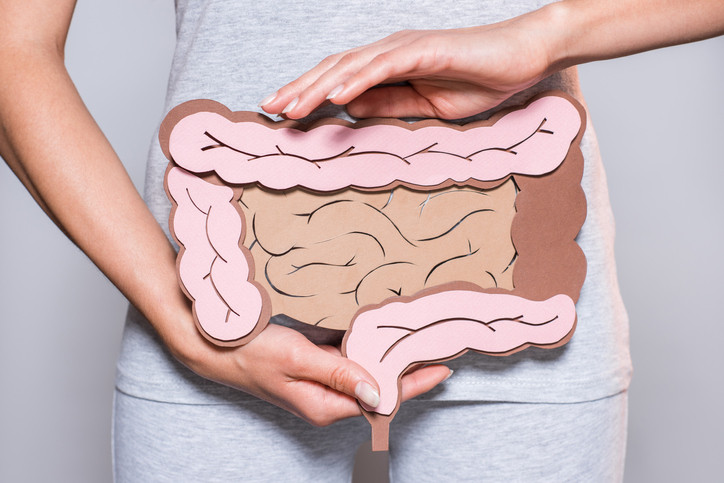
Counting steps is good — is combining steps and heart rate better?

Appendix pain: Could it be appendicitis?

Can saw palmetto treat an enlarged prostate?

How does Ozempic work? Understanding GLP-1s for diabetes, weight loss, and beyond

Zinc: What it does for the body, and the best food sources

Respiratory health harms often follow flooding: Taking these steps can help

Tips to leverage neuroplasticity to maintain cognitive fitness as you age

Can white noise really help you sleep better?

Celiac disease: Exploring four myths

What is prostatitis and how is it treated?
Harvard Health Blog
Read posts from experts at Harvard Health Publishing covering a variety of health topics and perspectives on medical news.
Articles
Does Botox reduce the frequency of chronic migraine?
People who experience chronic migraine headaches may benefit from treatment with botulimun neurotoxin (Botox), though other treatments such as medication are usually tried first.
Sleep driving and other unusual practices during sleep
The FDA has issued its most serious category of warning about three sleep medications due to reports of injuries related to their use. Aside from next-day drowsiness, these medications can cause sleep behaviors that may be dangerous.
Your risk of dementia: Do lifestyle and genetics matter?
Clinical trials for drugs to stop or slow the progression of dementia have not been successful. A recent study attempted to determine how much influence, if any, genetic and lifestyle factors may have on the development of dementia.
Psychotherapy leads in treating post-traumatic stress disorder
Expert recommendations for treating post-traumatic stress disorder (PTSD) differ. New research supports trying certain types of psychotherapy first, followed by medication if needed, or starting off with a combination of both.
Why are diabetes-related complications on the rise?
From 1990 to 2010, there was a significant decrease in diabetes-related complications, but since then the trend has reversed and complications are on the rise among young adults. This may be due to the changing profile of those who develop type 2 diabetes, or may be due to other factors.
Save the trees, prevent the sneeze
In many places in the United States, spring is starting earlier— which means more pollen and a longer allergy season. Fortunately, there are steps you can take to manage the impact of seasonal allergies and reduce sneezing and itchy eyes.
Feeling gassy — is it ever a cause for concern?
Intestinal gas can be embarrassing, but is a normal part of digestion. Only rarely is excess gas cause for concern. Which foods you eat –– and how you digest them –– can make a difference.
Leg pain when you walk? Don’t ignore it
Leg pain when walking that eases with rest may be a sign of peripheral artery disease, which raises risk for other cardiovascular problems. Lifestyle changes — keep walking! — and treatment help.
A new drug for low sexual desire in women: Bremelanotide
The FDA approved a new medication that may help some women experiencing low sexual desire, but there are restrictions on who can take it, and side effects to consider.
Can vaping damage your lungs? What we do (and don't) know
Reports of severe lung illness experienced by hundreds of people who were using e-cigarettes raise questions again about the safety of vaping. Vaping can help some people stop smoking, but potential health risks likely outweigh any benefit.
Avoiding nuts and seeds for better gut health? You shouldn’t
Nuts and seeds are rich in fiber, which is important for gut health and keeping you regular. And, contrary to a common concern, no evidence links eating nuts and seeds to a painful gut infection called diverticulitis.
Driving for teens with ADHD: What parents need to know
Parents always worry when a teen starts driving –– even more so if a teen has ADHD. Research shows teens with ADHD have a higher risk for auto accidents. Here’s how to reduce that risk.
Simple ways to wake up your workout
Avoid boredom and boost the benefits you gain from exercise with these simple tips to wake up your weight or treadmill workout.
How early can you — and should you — diagnose autism?
If a parent thinks a child might have autism, it helps to get a definitive diagnosis as early as possible, since the earlier treatment can begin, the better it is for the child. But at what age can a reliable diagnosis be made?
When it comes to cholesterol levels, white meat may be no better than red meat — and plant-based protein beats both
Plenty of people avoid red meat or eat only small amounts of it. But relying on white meat for protein may not be such a good nutrition choice either. According to the results of a small study, those who ate red meat and white meat had similarly higher cholesterol levels.
Talking to your doctor about your LGBTQ+ sex life
Talking about sexuality with a doctor can be uncomfortable. If you identify as LGBTQ+, it's important to find a doctor who is attuned to the specific needs of the LGBTQ+ community. This can make getting proper care easier.
Why do you need a primary care physician?
Primary care physicians treat adult patients for common ailments and chronic conditions, and also manage their patients’ treatments, often working with teams of caregivers. Establishing a relationship with a PCP allows your doctor to get to know you and your needs and goals.
Teens and confidentiality
Offering teens privacy and confidentiality when meeting with a health care provider may allow them to discuss uncomfortable topics –– such as risky behavior, physical concerns, feeling anxious or depressed –– a step toward getting needed information and help.
Impossible and Beyond: How healthy are these meatless burgers?
I’m in pain, so why is my doctor suggesting a psychologist?
The negative emotions that come from coping with chronic pain can lead to depression, and that very depression can lead to worse pain. Understanding the connection between pain and emotional health with the help of a psychologist can address these issues, and there are evidence-based therapies that can help as well.

Counting steps is good — is combining steps and heart rate better?

Appendix pain: Could it be appendicitis?

Can saw palmetto treat an enlarged prostate?

How does Ozempic work? Understanding GLP-1s for diabetes, weight loss, and beyond

Zinc: What it does for the body, and the best food sources

Respiratory health harms often follow flooding: Taking these steps can help

Tips to leverage neuroplasticity to maintain cognitive fitness as you age

Can white noise really help you sleep better?

Celiac disease: Exploring four myths

What is prostatitis and how is it treated?
Free Healthbeat Signup
Get the latest in health news delivered to your inbox!
Sign Up

























